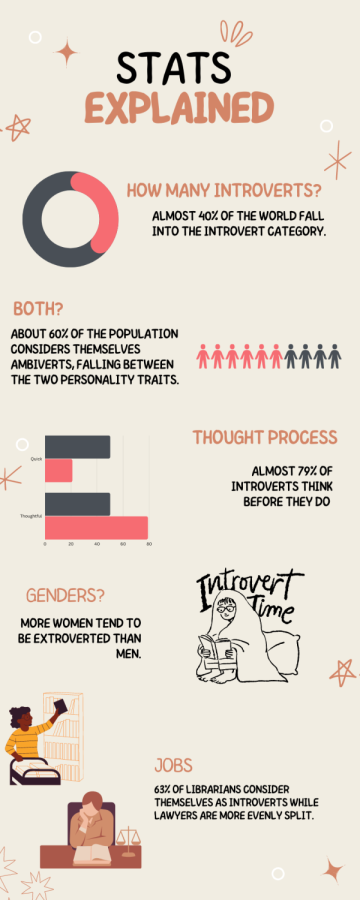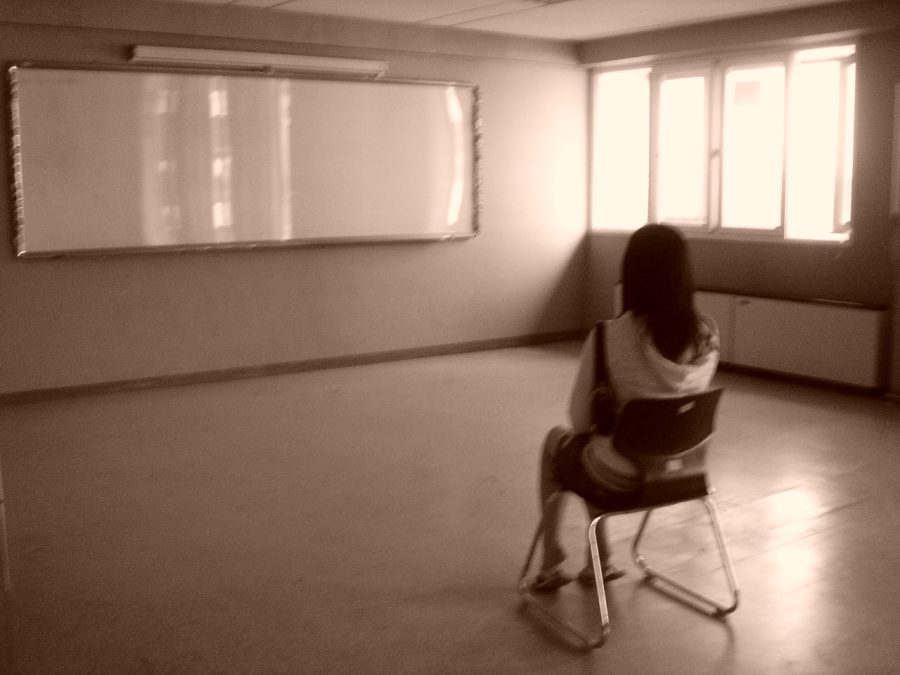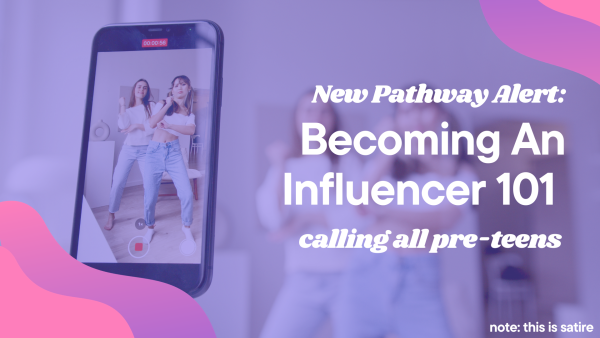One isn’t the Loneliest Number: Schools Must do More to Support Introverts
"Sitting Alone"/naraekim0801/flickr/C BY-NC-ND 2.0.
Introverts get easily overwhelmed when they’re around too many people. They work better when left alone with their own thoughts.
February 13, 2023
Almost 40% of the world’s population consider themselves to be introverts. But in the loud, bustling environment that is public school, this can be pretty hard to believe. It’s hard to get by if you’re not standing out some way or another, and you definitely can’t do that by being quiet.
Right?
“We live with a value system that I call the Extrovert Ideal – the omnipresent ideal belief that the ideal self is gregarious, alpha, and comfortable in the spotlight,” says Susan Cain in her award-winning book, Quiet.
Our society doesn’t seem to have space for more reserved people. Every day, we take more and more steps to create the loud, stimulating environment that extroverts crave, but at the same time ignoring the solitude that we introverts so desperately need. It’s not fair to make almost half the population feel uncomfortable just because they don’t fit the standard of usual successful people. Our schools should be focused on setting everyone up for success, and it starts with making schools a place for all personality types to thrive.
An introvert isn’t always a shy person. Being shy means being nervous in the presence of other people. An introvert can be shy, but it isn’t always the other way around. Instead of seeking external stimulation, introverts turn to themselves and their own thoughts. But in the fast-paced environment that is class discussions, there is almost no time to think.
“Classroom discussions moved quickly, and it felt impossible for me to get a word in. In true introvert fashion, by the time I had formulated my thoughts, the class was already on to the next topic,” a self-described introvert stated in the article How Class Participation Grades Unfairly Punish Introverts.
When so many teachers expect an answer in about a second, it ends in a race to see who can blurt out the first thing that comes to their mind. Meaningful discussions come out of patience and effort. Increasing the time given to think gives everyone a chance to think questions through and allows everyone, extrovert or introvert, to contribute to the topic.
“The way in which certain instructional trends—education buzzwords like ‘collaborative learning’ and ‘project-based learning’ and ‘flipped classrooms’—are applied often neglect the needs of introverts,” said a recent article from The Atlantic.

Schools more than ever have been leaning towards collaborative learning as a way for students to learn from their classmates as well as their teachers. This seems like a great idea, a way to break quiet people out of their comfort zone and encourage hands-on learning for everyone. After all, what can you possibly achieve in solitude? Aren’t two heads better than one?
“This growing emphasis in classrooms on group projects and other interactive arrangements can be challenging for introverted students who tend to perform better when they’re working independently and in more subdued environments,” according to the article by the Atlantic.
It’s true that we all need to be able to speak up when we need to, whether it’s just for ourselves or others. But there is a line between encouraging students to learn from each other to just taking away independent work all together.
I don’t mind group projects most of the time, but it can become too much at times. I remember when my teacher put us into groups of four to work on a project. I didn’t understand why we even needed a group. Each of us were supposed to work independently on an assignment and the only time we interacted was to present it together. Why?
It got even worse when two of my group members didn’t do their work. The chaotic class kept distracting them and they would simply wander off. I felt myself getting more frustrated and tired with the whole ordeal. I couldn’t get anything done in the noisy classroom and there wasn’t anything I could do about my teammates, either.
“Even subjects like math and creative writing, which would seem to depend on solo flights of thought, are often taught as group projects,” Cain points out.
Simply put, we’re pushing for teamwork when we don’t need it.
Creativity blossoms out of solitude, where it’s just you and your thoughts with nothing else to distract you. School strives to be the opposite: a confusing mess that leaves no time for thinking. I get some of my best work done in my own room by myself. At school, there is only a constant rush from one class to another. You’re always forced to interact with someone, no matter what kind of work you’re doing. Offering students a balance between independent work and teamwork is a big step in the right direction.
“The new economy calls for a new kind of man – a salesman, a social operator, someone with a ready smile, a masterful handshake, and the ability to get along with colleagues while simultaneously outshining them,” Cain says in her book.
Extroverts are often portrayed as the ideal person, able to socialize and prized for their ability to lead. But introverts have risen to the top too, using the qualities that make us unique to carve a place for ourselves.
“Introverted leaders sometimes deliver better outcomes than extroverts do,” Cain said in an interview with Scientific America. “Introverts are more likely to let talented employees run with their ideas, rather than trying to put their own stamp on things. And they tend to be motivated not by ego or a desire for the spotlight, but by dedication to their larger goal.”
People from Isacc Newton to Steve Wozniak are responsible for some of the most important things in modern society. They embraced their quiet thinking and used it to their advantage. We tend to overlook the people who don’t crave the spotlight, but it’s clear that we’re missing a lot of untapped potential by only focusing on the people who fit into the standard.
Introverts have a lot to offer, but it’s up to our schools to meet the challenge and give them a place to be heard.










